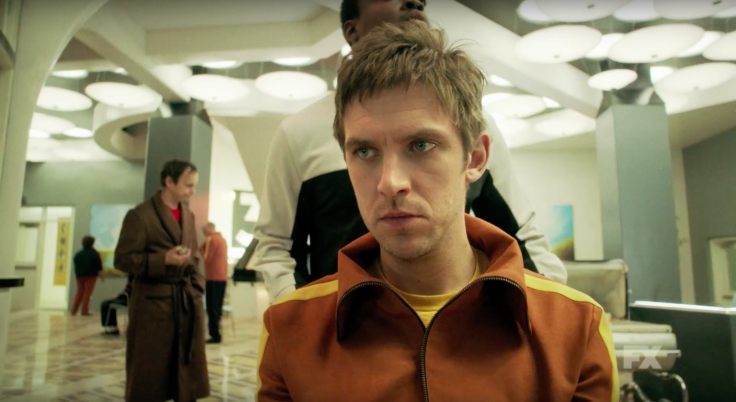Just like his fictional criminals, Noah Hawley loves to plan; to feel that he has control of the complete narrative, whether in his thriller novels like Before the Fall or his two shows, Fargo and Legion. “I’m always amazed that Breaking Bad — one of the great shows of all time — they didn’t know what they were doing or where they were heading,” Hawley said to a SXSW 2017 audience. “It was just work your way out of this frying pan and then out of this fire.” While Hawley knows where Legion is going, at least for its first season, he hopes to embrace that more anarchic spirit, to create a state-of-mind over a plot. It’s a little like, of all things, Pink Floyd’s Dark Side of the Moon.
“The first season has to have a beginning, middle and end, because that’s just good storytelling,” Hawley said, but unlike Fargo, which Hawley describes as “this objective ‘true’ story,” Legion “is meant to be a show that’s a state of mind as well.”
The adjective he returns to several times is “hypnotic.” And like hypnosis, it’s a process of bringing you deeper and deeper into a psyche, only here it’s David’s, the most powerful mutant on Earth, rather than your own.
“The first five minutes of the show I need to get you out of your life and what you just watched,” Hawley said. “You put on Dark Side of the Moon and it takes you a couple minutes to surrender to it.”
Like music, filmmaking has a number of tools to achieve this typically buried mentality. “There’s this sort of hypnotic sense — maybe there’s some repetition, maybe some imagery, there’s a sound, some music.”
Anyone who’s seen an episode of Legion will recognize what Hawley is talking about: hallucinatory visions of the Demon with the Yellow Eyes, memories hiding other memories behind tears in reality, fields of glimmering astral spaces and visual metaphors for interior experiences, like the giant knob David turns down to drown out the sound of other minds around him.
“It’s a visual medium,” Hawley said. “ I always want at least once every episode for you to go ‘what did they just do, that’s crazy!’”
Unfortunately, crazy doesn’t always make sense. And TV is all about making sense. “There’s only one note you ever get and that note is clarity. And you would be amazed what people will sacrifice for clarity — the joke, the scare.”
For Hawley, part of his job with Legion runs counter to TV’s standard narrative modes. He’s dodging the tyranny of plot. “The show is not an information delivery device,” Hawley said, “ it’s not about what happens, this happens and this happens and this happens, it’s about the experience of it.”
“So how do I recreate this state of mind?”
Hawley is hopeful that viewers will accept an implicit contract and trust the storytelling. “ Legion isn’t clear to anybody, yet, but it’s becoming clearer week in and week out. And everyone has to agree that it’s okay you’re going to see stuff in the first two hours of Legion that’s not information. It’s meant to be unnerving, unsettling. You don’t watch a David Lynch movie for information,” Hawley said, comparing Legion to the infamous diner scene from Mulholland Drive.
But even if viewers are willing to engage Legion with an open mind, that’s not the only tricky part of storytelling on TV. Unlike seeing a movie in theaters, TV viewers tend to be distracted. So Hawley works to throw his viewers for loops, giving them something unexpected.
“Everyone is half watching because it’s such a routine and the minute you do something unpredictable people put down the second device and lean forward in their chair,” Hawley said. “It’s all about cutting through.”
And even if they’re paying attention, there are those goddamn commercials. “If you watch it and you have the luxury to screen it without commercials, there’s a hypnotic quality to the way we put it together,” Hawley said, lamenting the narrative choppiness imposed by the constant breaking points.
Even with commercials, Hawley thinks he can hypnotize you. “It’s a weird ass show.”


















![[EG April 19] Best 'Stardew Valley' Mods That Will Change](https://d.player.one/en/full/226012/eg-april-19-best-stardew-valley-mods-that-will-change.png?w=380&h=275&f=955520b8313253ee3c39c791f6210f38)